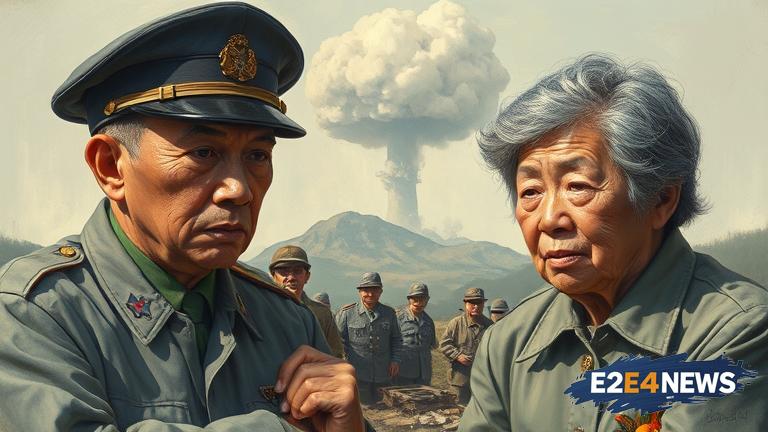The atomic bombings of Hiroshima and Nagasaki in 1945 had a profound impact on the world, causing widespread destruction and loss of life. Eighty years on, Korean survivors of the bombings are still suffering from the physical and emotional trauma inflicted upon them. Many of these survivors, known as hibakusha, were forced to work in Japan during WWII and were exposed to the atomic bombs. The bombings resulted in the deaths of an estimated 140,000 people in Hiroshima and 80,000 in Nagasaki, with many more suffering from injuries and radiation sickness. The Korean survivors, who were largely forced laborers, were among the most vulnerable to the effects of the bombings. Despite the passage of time, many of these survivors still suffer from physical ailments, including cancer, and emotional trauma, including anxiety and depression. The Korean government has been working to provide support and compensation to these survivors, but many feel that it is not enough. The survivors have also been seeking recognition and compensation from the Japanese government, which has been slow to respond. The issue of compensation and recognition for Korean survivors of the atomic bombings is a complex and sensitive one, with many feeling that their suffering has been overlooked and ignored. The Korean government has established a number of programs to support the survivors, including medical care and financial assistance. However, many survivors feel that these programs are inadequate and that more needs to be done to address their needs. The survivors have also been working to raise awareness about their experiences and to educate the public about the impact of the atomic bombings. This includes sharing their stories and experiences with the public, as well as advocating for greater recognition and compensation. The legacy of the atomic bombings continues to be felt today, with many survivors still suffering from the physical and emotional trauma inflicted upon them. The bombings also had a profound impact on the world, leading to a greater understanding of the devastating effects of nuclear war. The survivors of the bombings have been recognized as a symbol of the devastating effects of war and the importance of working towards peace. Despite the challenges they have faced, the survivors remain committed to sharing their stories and advocating for greater recognition and compensation. The Korean government and international community must do more to support these survivors and to ensure that their experiences are not forgotten. The survivors’ stories serve as a reminder of the importance of promoting peace and preventing the use of nuclear weapons. The world must continue to work towards a future where such devastating events are never repeated. The survivors’ experiences also highlight the need for greater international cooperation and diplomacy to prevent conflict and promote peace. The legacy of the atomic bombings is a complex and sensitive one, and it is essential that we continue to learn from the past and work towards a more peaceful future. The survivors’ stories and experiences are a powerful reminder of the importance of promoting peace and preventing the use of nuclear weapons. The world owes a debt of gratitude to these survivors, who have shared their stories and experiences with the public, and it is essential that we continue to support and recognize them. The issue of compensation and recognition for Korean survivors of the atomic bombings is an ongoing one, and it is essential that the Korean government and international community continue to work towards a resolution. The survivors’ experiences serve as a reminder of the importance of promoting peace and preventing the use of nuclear weapons, and it is essential that we continue to learn from the past and work towards a more peaceful future.
